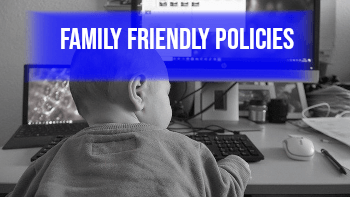The Employment Rights Advice Blog
 Articles, news and updates on employment law in Ireland
Articles, news and updates on employment law in Ireland
for employees and employers
____________________________________________________________________________________________________________________________________________________________________________________________________________________________________________________________________________________________________________________________________________________________________________________________________________________________________________________________
Tips about tips.
Learn about tips, gratuities and service charges.
The Payment of Wages (Amendment) (Tips and Gratuities) Act 2022 comes into effect on 1st December 2022. If you are wondering “what have I to do to comply with the legislation?” then you have come to the right page. In this article we examine in detail the The Payment of Wages (Amendment) (Tips and Gratuities) Act 2022. We look at who is affected by it and how employers can distribute tips and gratuities in compliance with the act.
Who is covered by the The Payment of Wages (Amendment) (Tips and Gratuities) Act 2022?
The new rules apply to employers in the following service areas:
-
The sale of beverages (including intoxicating liquor) or food for consumption on the premises at which such beverage or food is sold.
-
The sale of beverages (including intoxicating liquor) or food by means of casual trading.
-
The accommodation of overnight guests on a commercial basis in a hotel, guesthouse, hostel, bed and breakfast, self-catering accommodation facility or any similar accommodation facility.
-
Providing guided tours.
-
Carrying out non-surgical cosmetic procedures including the following: cosmetic nail care; nail styling; skin care; hair care; hair styling; tattoo services; and piercing services.
-
Gaming.
-
The provision of services as a licensed bookmakers.
-
Providing transport services by means of a public service vehicle other than services provided under a public transport services contract, services provided under a public bus passenger service licence, services provided exclusively for carrying children to or from a school.
What tips, gratuities and service charges are covered?
The Act deals mainly with electronic tips. An electronic tip is a payment made by any means other than cash. These include:
-
By smart card
-
By credit/debit card
-
By using apps designed to facilitate payment of tips and gratuities
-
By way of “push notification” app
Cash tips and gratuities would be too difficult to police and are not covered in the Act except for the requirement that employers will be required to include detail on how cash tips are distributed when displaying their policy on tips and gratuities. Businesses must display their policy on how tips, gratuities and service charges are distributed in a position where it can be clearly read by the consumer. Mandatory service charges must be distributed regardless of how they are received.
How are service charges affected ?
Where businesses impose a mandatory service charge on their customers, they must distribute that charge among the appropriate staff members, whether it is received electronically or otherwise. It is an offence if they do not do so. A ‘mandatory service charge’ is a contractually imposed and receipted payment that a customer must pay, in addition to the cost of certain goods or services.
Where an employer performs the same work as staff
An employer may keep a share of tips given electronically where the employer can prove they perform, to a substantial degree, the same work performed by the employees who receive a share of electronic tips. Any share of tips kept by an employer should be no more than an amount that is fair and reasonable in the circumstances.
More definitions
A tip or gratuity
The Act defines a tip or gratuity as a payment that is voluntarily made to, or left for, an employee or group of employees by a customer, in circumstances in which a reasonable person would be likely to infer that the customer intended or assumed that the payment would be kept by the employee or shared with other employees. This includes a contract worker
Contract worker
In the Act, ‘contract worker’ means a natural person who carries out work other than as an employee, including on a contract for service, for a person to whom this section applies
Platform workers
Platform workers who are not direct employees are included in the legislation. An online platform means a website or digital mobile application.
Some Do’s and Don’ts for employers
Do
-
Display your tips, gratuities and service charge policy in a prominant position
-
Agree with the relevant staff members on the method and frequency of distribution of the tips, gratuities and service charge
-
Provide a statement to workers showing the amount of tips obtained in a period and the portion paid to the individual employee for that particular period within 10 days of the distribution.
-
Decide if there is to be a charge for the cost of administering the scheme. This can only be based on the actual expenses incurred.
Don’t
-
Use the tips to make up wages. This is forbidden in the Act and will lead to a substantial fine on conviction
-
End up having to pay the maximum fine of €2500
What factors, should I as an employer, take into account when deciding on a fair distribution method?
Factors to be considered when deciding how to distribute tips include
(a) the seniority or experience of the employee,
(b) the value of sales, income or revenue generated for the business by the employee,
(c) the proportion or number of hours worked by the employee during the pay period in which the tip or gratuity was made,
(d) whether the employee is on a full-time or part-time contract of employment,
(e) the role and influence of the employee in providing service to customers,
(f) whether the employee was consulted in relation to the manner of distribution, and
(g) whether there is an agreement, whether formal or informal, between the employer and the employee providing for the manner in which tips or gratuities are to be distributed.
What can an employee do if they are not happy with the way that the tips, gratuities and/or service chargesare being distributed?
If an employee is not satisfied that the distribution system is fair, they must bring the matter to the attention of the employer in the first instance. If that fails to resolve matters, then they can refer the complaint thee the Workplace Relations Commission. This must be done within the normal six month period for making a complaint.
Where can I get help with producing a compliant tips and gratuities policy?
If you would like some interactive assistance in producing a compliant tips and gratuities policy
just click on the button below for more information on this service.
Family Friendly Policies
COVID-19 shows why they are a must
Family friendly policies in the workplace
 The recent Corona virus COVID-19 pandemic has had a major impact throughout the world. How we organise our work process has been impacted, but not always in a negative way. Remote working, working from home, the right to disconnect, are just some of the areas where advances have occurred. Employers in general have tried to support their workers through this difficult time. They have achieved this through implementing more family friendly policies. There will always be areas of work where teamwork in a centralised building is essential, but this model does not apply in every situation. The benefits of home working have been recognised and facilitated by many employers. In this article we look at the impact that family friendly policies can have in the workplace, in helping achieve a better work life balance.
The recent Corona virus COVID-19 pandemic has had a major impact throughout the world. How we organise our work process has been impacted, but not always in a negative way. Remote working, working from home, the right to disconnect, are just some of the areas where advances have occurred. Employers in general have tried to support their workers through this difficult time. They have achieved this through implementing more family friendly policies. There will always be areas of work where teamwork in a centralised building is essential, but this model does not apply in every situation. The benefits of home working have been recognised and facilitated by many employers. In this article we look at the impact that family friendly policies can have in the workplace, in helping achieve a better work life balance.
Building back better
As business looks at ways to reopen, there is an ongoing desire among many to build back the workplace structures to have a better impact on all concerned. Achieving a better work life balance helps the organisation as well as the employee and their family.
Some family friendly policies
Family friendly policies are designed to enable parents be productive employees while providing for the needs of their children in a balanced way. The benefits for the employer are many. Reduced absenteeism, improved productivity,increased loyalty, retention of skilled and experienced staff, motivated workforce and a reduction in workplace stress are some of the advantages of implementing family friendly policies. In a recent survey it was noted that over 50% of Irish businesses offer some form of family friendly working arrangement. In Ireland the National Framework Committee for the Development of Family Friendly Policies is hard at work looking at ways to promote family friendly policies in a partnership approach. In the context of equality, family friendly policies help to facilitate equal access to the workplace.
A list of family friendly policies would include the following:
- Maternity leave. For more see here
- Breast feeding at work. For more see here
- Parental leave. For more see here
- Paternity leave. For more see here
- Adoptive leave. For more see here
- Force majeure leave. For more see here
- Flexible working. For more see here
- Remote working/Working from home. For more see here
- Compassionate leave. For more see here
- Employer provided childcare facilities. For more see here
How to create a family friendly policy
1. Examine your current employees and their lives outside the workplace
2. Prepare an anonymous survey for employees
3. What family friendly policies do your competitors offer?
4. Estimate the effects on the workplace and pay.
5. Consult and communicate with all employees regarding the family friendly policies which you are planning to implement.
Where can I get more information and help with implementing family friendly policies?
If you would like help with considering the benefits of family friendly policies in your organisation, please contact us using the orange Yes! Tell Me More button below.. We will contact you at a time that suits.
Spread the knowledge. If you found this article useful, please like and share using any of the social buttons below.
Child care facilities at work
We examine the benefits and challenges
 While most employers in Ireland are not in a position to offer on-site childcare facilities to their staff, we take a look at the benefits of providing on-site childcare
While most employers in Ireland are not in a position to offer on-site childcare facilities to their staff, we take a look at the benefits of providing on-site childcare
-
On-site childcare benefits everyone
When an employer offers the convenience of on-site childcare facilities it sends a clear message to employees that they are valued and time is valuable, including their time.
-
Increased productivity and loyalty
Surveys reveal that employees focus more, knowing that their child is being looked after on-site. There is less separation anxiety.
-
More employees are seeking jobs with on-site childcare.
When planning their career many employees place a greater emphasis on ease of access to childcare facilities than their predcessors did.
-
More gender sharing of parenting role
This highlights the need to cater for parenting irrespective of gender.
On the negative side however we must consider the following:
-
Most employers do not have the physical space to offer on-site childcare facilities.
-
For most employers in Ireland the numbers would not sustain it.
-
Consideration needs to be given to the liability aspect of an on-site childcare facitity.
-
There is no tax incentive to offer it. Irish Revenue treat it as a Benefit in kind and therefore taxable.
These are just some of the matters to keep in mind when considering the provision of on-site childcare facilities
Where can I get more advice on providing childcare facilities to staff?
You can contact us using the orange Yes! Tell Me More button below. and we will get in touch at a time that suits you.
Spread the knowledge. If you found this article useful, please like and share using any of the social buttons below.
Latest Employee Blogs
- Performance Improvement Plan or Exit Strategy?
- Whistleblower awarded five years salary by Workplace Relations Commission
- Unlawful COVID-19 pay cut
- Unfair Redundancy Case
- How to raise a problem at work
- Trade Secrets and Whistleblowing
- Is your fixed term contract valid?
- What is it like to bring an unfair dismissal claim?
- Employer relocation
- End of P45
Latest Employer Blogs
- Changes to probationary period
- Redundancy Update
- COVID-19 Vaccination Data in the workplace
- Statutory Sick Pay Scheme
- The Right to Disconnect
- Covid-19 Can I use lay off and short time to cope with Covid-19 ?
- Covid-19 (The Coronavirus) Tips for employers
- Social Media Monitoring in the Workplace
- Using 3rd party CCTV footage
- Do I need a Data Protection Officer ?







